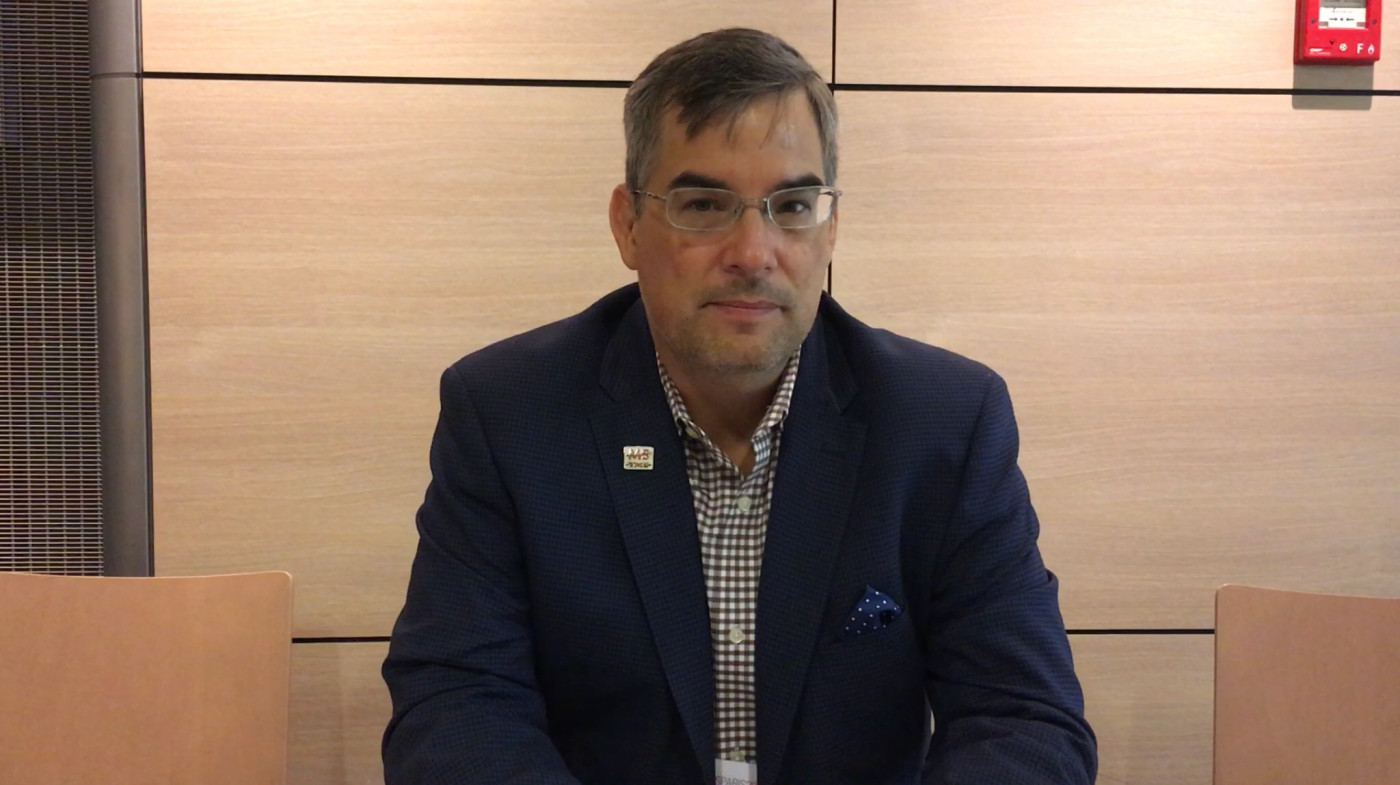#MSParis2017 – Advances in Progressive and Pediatric MS Top ECTRIMS Highlights, NMSS Says

A giant leap in research and interest in progressive multiple sclerosis — from a few people pushing for such work to 2,000 listening to updates on it — a successful first trial in children, and a growing body of potentially safer treatments for relapsing MS were among the highlights of the four-day 7th Joint ECTRIMS-ACTRIMS Meeting that concluded in Paris on Saturday, a National Multiple Sclerosis Society executive said.
The thousands who came to hear presentations by International Progressive MS Alliance-supported scientists “will stick in my memory for the longest time,” said Bruce Bebo, executive vice president for research at the society.
We “probably [had] close to 2,000 people in the room to listen to the talks by our three funded global collaborative network award winners.”
The projects are looking into ways of potentially promoting myelination and “modulating the compartmentalized immune response” seen in progressive MS, along with developing “quick” outcome measures that might make Phase 2 progressive trials both possible and effective, Bebo said. That last one, he added, aims to overcome “one of the biggest obstacles” in progressive disease research.
Progressive MS, which unlike relapsing disease is not necessarily marked by periods of active inflammation, is diagnosed in its primary form (PPMS) in about 15 percent of all MS patients worldwide, while about 65 percent of relapsing patients will go on to develop secondary progressive multiple sclerosis (SPMS). The alliance announced three multi-year $6 million awards in September 2016 to support and promote the work.
“I felt very proud … to be in that room [at ECTRIMS] and know I had some small part in helping get that done,” Bebo said, mentioning the role of his team, the National MS Society at large, and MS groups worldwide “have played to focus the attention of the world on that problem.
“It’s the most attention I’ve seen to progressive MS [than] any meeting I’ve been to before,” he added.
Bebo also spotted results announced earlier Saturday for the SPRINT MS Phase 2 study (NCT01982942), showing that MediciNova’s ibudilast “could slow the rate of brain atrophy in people with either primary or secondary progressive MS by 48 percent.”
SPRINT also stands out for being “the first clinical trial … using advanced imaging techniques to try to understand other mechanisms of action” for ibudilast, Bebo said, detailing those in the interview.
And he said he was comforted “in some ways” to hear that side effects reported in progressive SPRINT patients were similar to those recorded in relapsing patients treated with ibudilast in earlier studies.
PARADIGMS, a Phase 3 trial (NCT01892722) of Gilenya (fingolimod), by Novartis, in children and teenagers (ages 10–17) was another exceptional ECTRIMS 2017 moment: the first clinical trial able to finish in this “very, very challenging” to study patient group and to conclude with marked success.
“In a nutshell,” Bebo said, it showed Gilenya could stop relapses in pediatric patients with a success rate of around 80 percent, possibly a result “more potent than the result we saw in adults” that led to the treatment’s approval for older patients. He details why clinical studies in pediatric MS are so seldom concluded — much less successful — in the interview.
Work on relapsing MS treatments at this year’s ECTRIMS stood out to Bebo for building on existing therapies to reduce side effects so as to make them safer, and slightly more effective or more convenient to use. He mentions in the talk the different “mods” — like ozanimod by Celgene, siponimod also by Novartis, and fingolimod — that all are “enhancements over the initial drug.”
Bebo also spotted ongoing natural history studies for beginning to tackle the “big questions” in MS, and the many extension studies underway working to better understand disease treatments and the disease itself.
Finally, he answered questions posed by two readers of Multiple Sclerosis News Today in previous Facebook Live chats from ECTRIMS.
To James’ question of what “MSers might be excited about” coming from ECTRIMS, Bebo mentioned the conference’s focus on progressive disease. “No one’s giving up on relapsing MS,” he said, “but the real unmet need is to trying for a solution for people living with progressive MS.”
Plus, there was the simple fact that 10,000 people came out to learn from thousands of posters and oral presentations solely focused on MS, its causes, reasons for progression, and potential best ways of treating and arresting it through therapies and lifestyle changes.
To Kevin’s request for developments in potential stem cell therapies, Bebo said that studies either underway or starting into autologous hematopoietic stem cell transplants (aHSCT) might give the community a solid sense of benefits versus risk and “who is most likely to benefit.” He thought aHSCT the more promising approach, although “topline” results are a way off.
Work shown at ECTRIMS into mesenchymal stem cell (MSC) transplants, in Bebo’s opinion, was more of interest for the factors these bone marrow or tissue stem cells can secrete that might “promote repair and promote immune reactions.” These studies are also only in early stages.
But, he added, the National MS Society will continue to support valid and scientific studies into all types of stem cell transplants because, while “risky,” they potentially have “long-lived and strong benefits.”
The complete interview with Bruce Bebo can be seen below:






